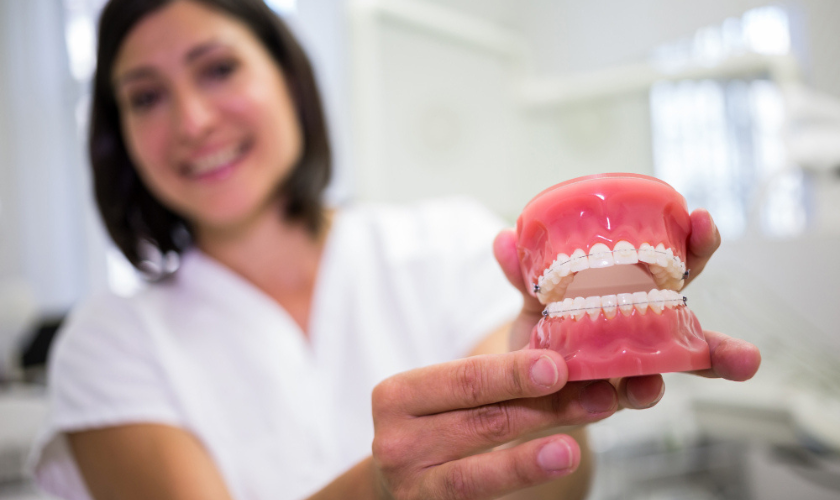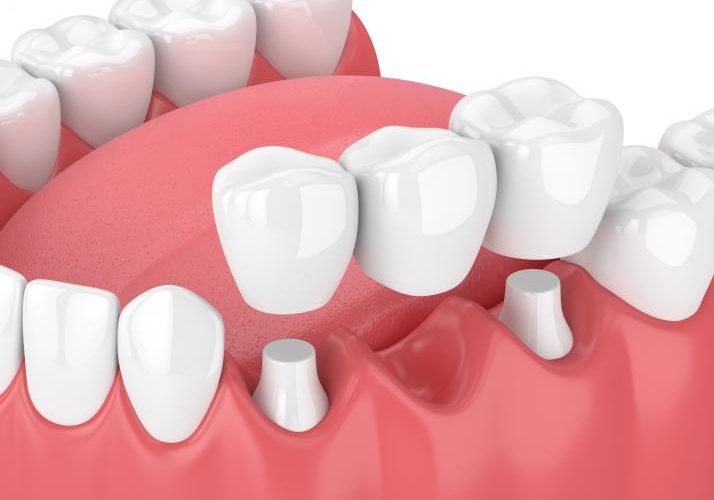Smiling is one of a person’s most beautiful expressions, but what happens when your smile isn’t perfect? Whether you’ve chipped a tooth or suffered from decay, dental crowns may be the solution to restoring your smile. From porcelain to ceramic, there are many types of crowns available today. However, with so much information, it’s easy to feel overwhelmed and confused about which option is right for you. Fear not! Our ultimate guide to dental crowns covers everything you need to know about this versatile cosmetic dentistry treatment. So sit back, relax, and get ready to learn how dental crowns can restore your confidence and give you the perfect smile you deserve!
What is a Dental Crown?
It is a tooth-shaped “cap” placed over a tooth to cover it and return to its shape and size. A dental crown can be used to:
-Protect a weak tooth from breaking
-Support a tooth with a large filling
-Cover a misshapen or discolored tooth
-Attach a dental bridge
-Cover an implant
Benefits of Dental Crowns
There are many benefits of dental crowns. For example, they can be used to protect a tooth that is damaged or decayed, to support a tooth that has a large filling, or to cover a misshapen or discolored tooth. Crowns can also be used to maintain a dental bridge in place or to cover an implant.
Dental crowns are made of solid and durable materials designed to last many years with proper care. In addition, they can be made to match the color of your natural teeth, so they blend in seamlessly.
Crowns are a great way to restore the function and appearance of your smile. If you have a damaged, discolored, misshapen, or missing tooth, talk to your dentist about whether a crown is right for you.
Types of Dental Crowns
The most common types of dental crowns are made from porcelain, ceramic, or metal.
Porcelain and ceramic crowns are the most familiar type of dental crowns. They are made from a mixture of porcelain and other materials, such as zirconia or feldspathic porcelains. Porcelain crowns are strong and durable and can match your original teeth’ color.
Metal crowns are made from gold, platinum, palladium, or a base-metal alloy. Metal crowns are strong and durable but can be more visible than porcelain or ceramic crowns. Metal crowns are often used for back teeth.
Other types of dental crowns include:
– Composite resin: These crowns are made from plastic and glass particles. They can be matched to the color of your natural teeth. Composite resin crowns are less expensive than porcelain or ceramic crowns, but they are less strong and durable.
– Stainless steel: Stainless steel is a metal often used for temporary dental crowns. Stainless steel crowns can be used until your permanent Crown is ready.
– Zirconia: Zirconia is a type of ceramic that is stronger than other types of ceramics. It can be matched to the color of your natural teeth.
How Much Time Does It Take to Make a Dental Crown?
It typically takes two dental visits to complete a dental crown procedure. During the first visit, your dentist will take an impression of your tooth, which will be used to create the Crown. They will also place a temporary crown on your tooth while you wait for the permanent one to be made. The second visit is when you’ll get your permanent Crown placed over your natural tooth. Your dentist may need to adjust the fit of the Crown during this visit.
What Are the Steps Involved in Getting a Dental Crown?
1. The first step is to schedule an appointment with your dentist. They will assess your situation and determine if a dental crown is best for you.
2. If they decide a crown is right for you, they will take x-rays and impressions of your teeth to create a custom fit for your new Crown.
3. Once your Crown is ready, you will return for a second appointment to have it placed. Again, your dentist will clean and prep your tooth before placing the Crown over it and securing it with dental cement or screws.
4. After your Crown is in place, you must care for it like your natural teeth – brush and floss regularly and see your dentist for regular checkups and cleanings.
Taking Care of Your Dental Crown
Your dental Crown is an essential investment in your smile, so taking care of it is essential! Here are a few tips to keep your Crown looking and functioning at its best:
–Brush and floss regularly: This will help remove plaque and bacteria from around your Crown, which can help prevent decay.
–Avoid hard foods: Biting into hard foods can stress your Crown and potentially damage it. Instead, stick to softer foods that won’t put too much pressure on your tooth.
–See your dentist regularly: Your dentist will be able to check for any signs of wear or damage to your Crown during regular checkups.
Conclusion
We hope this guide has helped you better understand what dental crowns are and why they can be an excellent solution for your oral health needs. Whether you want to repair a damaged tooth or protect it from further harm, dental crowns could be your answer. Be sure to discuss your options with your dentist before making any final decisions about treatment so that together you can devise the best plan for restoring or protecting your teeth.


